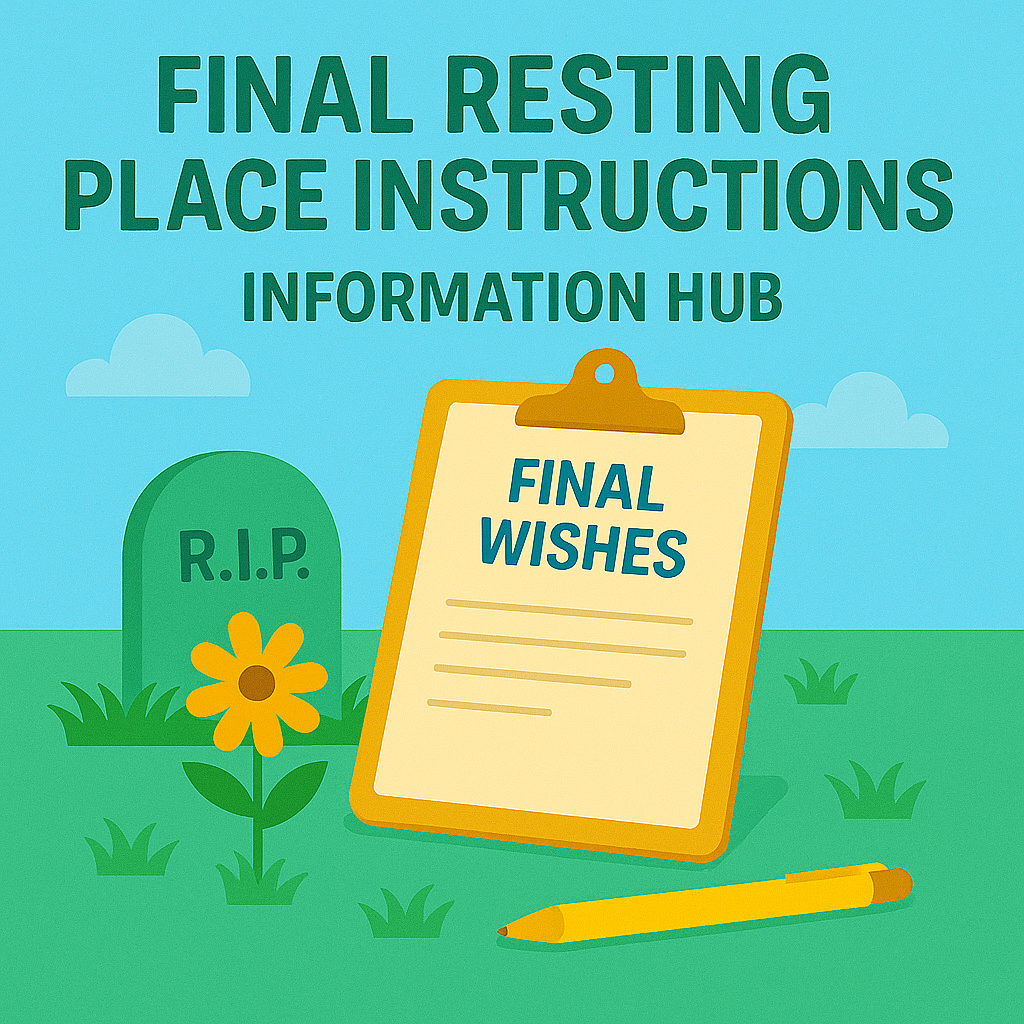Ensuring Your Final Wishes Are Honored
The Final Resting Place Instructions Hub
Planning your final resting place ensures that your wishes are respected and provides clarity for your loved ones during a difficult time. Whether you prefer burial, cremation, or an alternative arrangement, documenting your preferences removes uncertainty and prevents emotional and financial stress for your family. A clear plan also helps executors and funeral planners carry out your decisions smoothly.

Key Things To Know
Outlining your final resting place preferences helps loved ones honor your wishes and simplifies estate planning. Here’s what to keep in mind.
- Burial or cremation preferences should be clearly stated: Indicate whether you want to be buried, cremated, or have an alternative arrangement such as a green burial or sea scattering.
- Cemetery or final resting place details should be documented: If you have a specific cemetery plot, mausoleum, or scattering location in mind, include the details.
- Prepaid funeral or burial plans should be easily accessible: If you’ve prepaid for funeral or burial services, your executor and family should know how to access the details.
- Religious or cultural traditions may impact arrangements: Many faiths and cultures have specific funeral rites—documenting them ensures they are honored.
- Clear instructions prevent family conflicts: When final arrangements are clearly outlined, it reduces the likelihood of disagreements among family members.
Checklists, Guides, & Resources
Buried in Work offers a variety of checklists, guides, and other resources. Below are some of the most popular ones related to this information hub.
Find A Service Provider Near You
Need professional assistance? Use our directories to find trusted service providers near you who specialize in estate planning, end-of-life organization, and related services.
Articles
Frequently Asked Questions
Have questions about planning and documenting your final resting place? Here are answers to common concerns.
Disclaimer: The information provided on this website and by Buried in Work is for general informational purposes only and should not be considered legal advice. Please consult with a qualified attorney or subject matter expert for advice specific to your situation.


